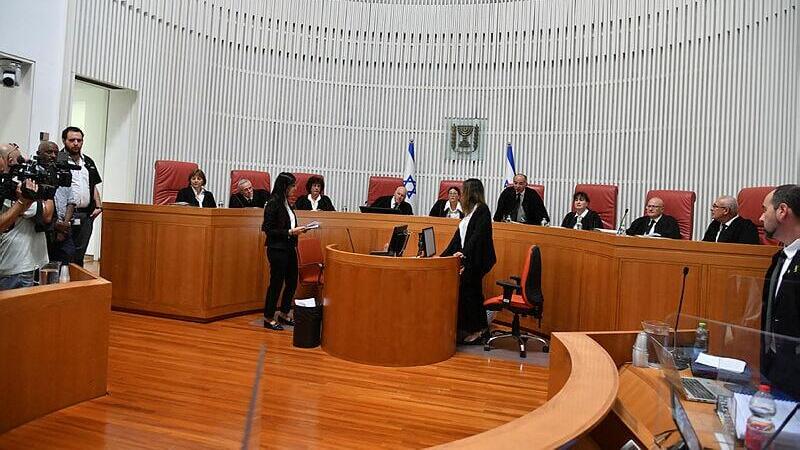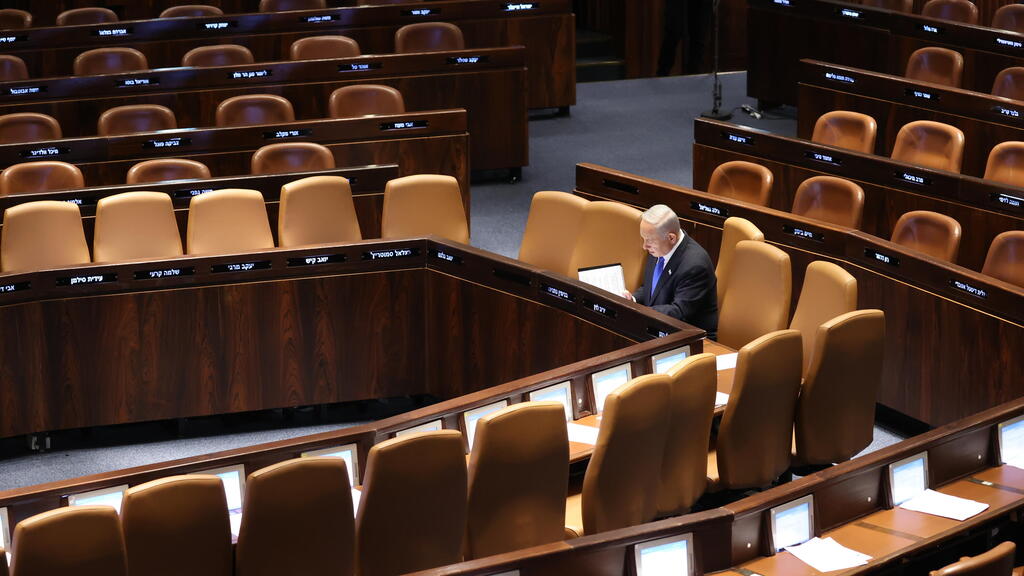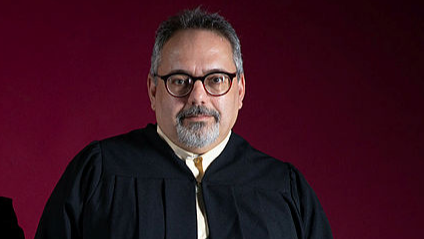Getting your Trinity Audio player ready...
The only way Israel’s judicial system can recover is by employing two parallel courses of action: advancing the Justice Minister Yariv Levin's reform as if Prime Minister Benjamin Netanyahu was not on trial, and continue with the Netanyahu trial as if there were no reform. Otherwise, the system will carry on sinking.
It's easy to envy those fighting in the extremists’ camps presently quarreling over Israel’s judicial ground. Despite both camps knowing full well that law isn’t a science and it contains neither total “right” nor total “wrong,” for the extremists, it’s all clear and simple.
The former will support the reform proposed by Levin because it will likely release the judicial system from Netanyahu, while the latter will fight the reform just because it’s being advanced by Netanyahu and will likely serve his interests.
As on Masada, everything is declared very vehemently, telling us that this is the one and only, unquestionable truth. To Elazar Ben Yair’s latter-day adherents too, all doubts are left cascading down the mountainside.
It didn’t start with the new government. This battle has paralyzed the judicial system for years. No real reform has been advanced. No significant correction has been made. Old walls have been plastered over a bit. They’ve hung supporting beams over walls that are about to collapse. Nothing more.
Thus, the fortress of the Israeli judicial system, once a source of national pride, has been neglected and has fallen apart. Anyone going anywhere near it with tools, even non-heavy-duty tools, has been labeled an enemy wanting to destroy the fortress. This is one of the greatest impairments caused to the judicial system as a consequence of Netanyahu’s trials.
The results are clear to see. Whereas 25 years ago, 80% of Israelis expressed faith in the Supreme Court, two years ago Haifa University research showed that three out of four Israelis do not express a high level of trust in the highest court in the land.
These results are shocking because, as American founding father Alexander Hamilton said, the judiciary has neither sword nor purse, but only the trust of the people. Without this trust, the courts have no legitimacy. With no legitimacy, there is no judiciary.
A further shocking finding is that 75% of Israelis believe that the judicial system discriminates between citizens and is discriminatory in implementing the law.
This finding is terrifying because, as Alexander Milton said, courts have neither purse nor sword. I repeat: This kind of decline in public trust is dangerous for any democracy wishing to stay alive because a democracy’s lifeline is its judicial system.
Nevertheless, alarm bells weren’t sounded. Not a single senior member of the system, past or present, had admitted even in a whisper: We were wrong, we made mistakes, we did not conduct ourselves correctly.
Quite the opposite, they all carried on burying their heads in the sand, blaming anyone they could: Netanyahu and his supporters who want to destroy the system to save him from the law suits against him; social media which disseminates fake news.
The list goes on. Incidentally, they’re not completely wrong. The delegitimization of the judicial system by Netanyahu’s supporters definitely hurt, but not to the extent that would account for such a huge fall in public trust.
As Netanyahu’s trial is set to continue for some time, we cannot wait for it to be over. The fortress is falling apart and it won’t remain standing if we don’t rush to fix it. Criticism of the judicial system has been silenced for too long so as not serve its enemies.
This mistake must be corrected right away. To paraphrase David Ben-Gurion: we must advance some of Yariv Levine’s reforms as if there were no Netanyahu trial and continue Netanyahu’s trial as if there were no reforms demanding correction.
To put it more clearly: anything connected to the Netanyahu trial must not be touched as long as it is ongoing, while at the same time advancing the changes needed for everything unrelated to the trial. This is the only way to stop Israel’s judicial system from collapsing and reinstating it as a fortress in the eyes of the public.
Reviewing proposals currently discussed for the reform using this principle, the following will become clear: Some of the changes currently being discussed can be advanced.
Take for example the override clause negating the Supreme Court: it isn’t just about needing a majority of 61 or 65, but rather whether this majority includes members of the Opposition and what the exceptions might be.
Levine claims that the reform will make Israel more democratic. If so, it would be reasonable to make an exception for laws affecting the right to vote and be elected, like in the eventuality that the Knesset decides to postpone elections or change their very nature (as was the case in the inaugural meeting of the very first Knesset) or if they decided to revoke the voting rights of bald people (I apologize for branching out and not using the cliché about red-haired people).
This is central and it’s lacking. The same goes for the reasonableness clause - which isn’t connected the Netanyahu trial and therefore may be advanced.
A further example touches on human rights: As the reform is so comprehensive, and we’re fixing the whole part of the constitution dealing with institutions of government and resolving the relationship between them, shouldn’t we, after all this time, formulate a basic charter of human rights – equality, freedom of expression, etc.?
Like in all those constitutions Levine so covets. They go together. They must. This too is missing from the proposed program.
On the other hand, all the parts potentially connected to Netanyahu’s trial such as replacing legal advisors with political appointees or changing the make-up of committees appointing judges, must be put on hold.
As replacing the heads of the prosecution is likely to affect the conduct of prosecution representatives in courts, it must not be advanced. Even those believing that such positions should be political appointments (as is the case in many democracies), it’s important to understand the danger entailed in advancing it while the trial is ongoing.
Simultaneously working along these two separate tracks will allow us to, on the one hand, finally fix everything in the judicial system, and on the other cause no detriment to the proper course of Netanyahu’s trial.
Even those maintaining that it was a mistake to press charges against Netanyahu for such vague offenses or ones based on factual precedential conjecture, must oppose stopping the trial before a conclusive judicial decision has been reached.
Precisely because of the low public confidence in the judicial system, Netanyahu’s trial must reach its conclusion like any other criminal trial. Although from conversations I’ve held with Netanyahu, I know that he genuinely believes that he has been treated unjustly by the law enforcement system, that in no way justifies interfering in a judicial act that must be independent and impartial.
A person who loves his people and his country and understands the cruciality of the principal of equality before the law, must bow his head before his judges and behave like any other defendant.
As the son of a historian, Netanyahu knows full well what happened to our people when these principles were not upheld. When Herod the Great was tried by the Sanhedrin for killing a Galilean Jew, he showed up in court flanked by his guards.
This is in contravention of the custom of those standing trial for murder appearing in court dressed in black, with unkempt hair – a look conveying their submission to the court’s ruling. Herod’s intentions were clear: to intimidate the judges into changing the rules for him.
Unfortunately, Herod succeeded as his trial was interrupted. The price paid is familiar not only to sons of historians: it was the beginning of the end. The Jewish judicial system was destroyed. Then the temple. It mustn’t happen to us again.
Prof. Yuval Elbashan is a lawyer and social activist







